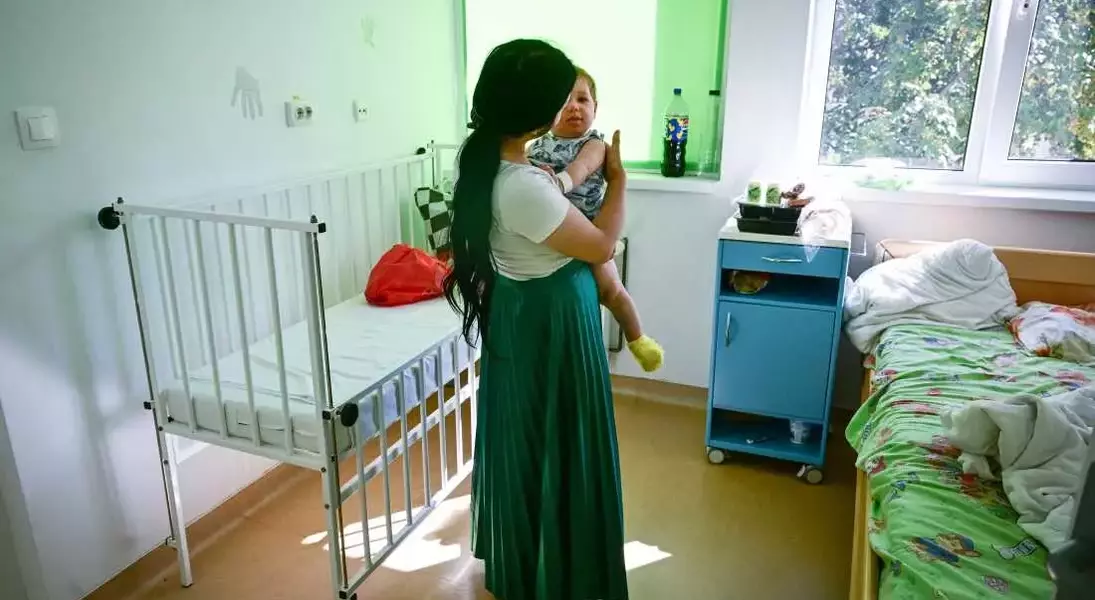
Romania's experience with a severe measles outbreak serves as a stark warning, revealing how historical, political, and systemic factors can undermine public health efforts. Despite being an upper-middle-income European country, Romania grappled with over 30,000 measles cases and 23 deaths last year, including five infants, highlighting the devastating consequences of declining vaccination rates. The challenges faced by Romania—rooted in post-communist vaccine distrust, a controversial HPV vaccine campaign, a fragile healthcare system, and the rise of anti-vaccine sentiments—offer critical lessons for nations like the US, which is currently battling its own significant measles resurgence. Addressing vaccine hesitancy and strengthening public health infrastructure are crucial to preventing similar crises globally.
Romania's battle with measles underscores the complex challenges even economically stable countries can face in maintaining high vaccination coverage. The nation's struggle is a multifaceted issue, with its roots tracing back to the post-communist era, where a newly found freedom was often interpreted as the liberty to reject state-mandated health policies, including vaccination. This historical context, coupled with a controversial HPV vaccine campaign in 2008, sowed seeds of distrust among the populace, leading to a significant drop in measles vaccine uptake from 95% to a mere 62% by 2023. This decline was further exacerbated by a fragile and underfunded healthcare system, a dwindling number of primary care providers, and the absence of mandatory immunization policies, all of which created fertile ground for anti-vaccine narratives to flourish.
Romania's Measles Crisis and its Complex Roots
Romania, a European nation with significant economic standing, recently grappled with one of the most severe measles outbreaks globally. Last year alone, the country registered more than 30,000 cases and 23 fatalities, with five of these tragic deaths being infants under one year old. This alarming situation is attributed to a confluence of factors, including deep-seated distrust in government-mandated health initiatives following its authoritarian past, skepticism amplified by a controversial HPV vaccine campaign, a weak healthcare infrastructure, and the growing influence of anti-vaccine proponents. This cautionary tale offers valuable insights for other nations, such as the United States, currently confronting their own substantial measles resurgence.
The measles epidemic in Romania is a profound case study in how historical, political, and public health elements intersect to shape a nation's vulnerability to preventable diseases. During its communist rule, vaccinations were compulsory and widely accepted, leading to high immunity rates. However, with the transition to democracy in 1989, many Romanians viewed the freedom to decline vaccinations as a rejection of authoritarian control. This sentiment was further exacerbated by a poorly managed HPV vaccine campaign in 2008, which inadvertently fueled widespread vaccine skepticism. Consequently, measles vaccination coverage plummeted from an optimal 95% to just 62% in 2023, the lowest in the European Union. Compounding these issues are systemic weaknesses within the healthcare system, including chronic underfunding, a shortage of healthcare professionals, and a lack of mandatory immunization policies. These factors collectively created a precarious environment where the highly contagious measles virus could easily spread, particularly impacting vulnerable populations like the Roma community, who often face barriers to accessing healthcare and accurate information.
Addressing Vaccine Hesitancy: Lessons for Global Health
The Romanian experience provides crucial lessons on the importance of robust public health communication and strategic intervention to combat vaccine hesitancy. With the US currently facing its most severe measles outbreak in three decades, understanding Romania's challenges can inform and refine American public health strategies. Experts emphasize the need for evidence-based approaches to counter misinformation and foster trust, moving beyond judgmental rhetoric to embrace techniques like motivational interviewing. By engaging with individuals' concerns and providing tailored, empathetic communication, healthcare providers can empower parents to make informed decisions about vaccination, ultimately rebuilding community immunity and protecting the most vulnerable.
The global health community can draw significant conclusions from Romania's struggle with measles, particularly concerning the critical need for effective communication and trust-building in public health campaigns. The US, alongside other developed nations, is witnessing a resurgence of measles, underscoring that economic prosperity does not guarantee immunity from vaccine-preventable diseases. Romania's case highlights that addressing vaccine hesitancy requires more than just scientific data; it demands a deep understanding of societal nuances, historical contexts, and individual anxieties. Healthcare professionals in Romania, for instance, have begun employing motivational interviewing—a patient-centered counseling approach—to engage with hesitant parents. This method involves actively listening to concerns, validating feelings, and collaboratively exploring solutions, rather than simply dictating medical advice. Such empathetic and non-confrontational strategies are vital in navigating the complex landscape of vaccine skepticism, which is often fueled by misinformation and distrust in institutions. By adopting similar community-tailored and evidence-based communication frameworks, countries can work towards reversing the alarming trend of declining vaccination rates, thereby safeguarding public health and preventing future outbreaks.
